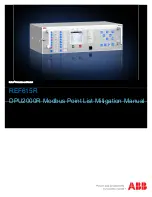
34-3
Catalyst 3750-E and 3560-E Switch Software Configuration Guide
OL-9775-08
Chapter 34 Configuring Embedded Event Manager
Understanding Embedded Event Manager
Event Detectors
EEM software programs known as event detectors determine when an EEM event occurs. Event
detectors are separate systems that provide an interface between the agent being monitored, for example
SNMP, and the EEM polices where an action can be implemented. Event detectors are generated only
by the master switch. CLI and routing processes also run only from the master switch.
Note
The stack member switch does not generate events and does not support memory threshold notifications
or IOSWdSysmon event detectors.
EEM allows these event detectors:
•
Application-specific event detector—Allows any EEM policy to publish an event.
•
IOS CLI event detector—Generates policies based on the commands entered through the CLI.
•
Generic Online Diagnostics (GOLD) event detector—Publishes an event when a GOLD failure
event is detected on a specified card and subcard.
•
Counter event detector—Publishes an event when a named counter crosses a specified threshold.
•
Interface counter event detector—Publishes an event when a generic Cisco IOS interface counter for
a specified interface crosses a defined threshold. A threshold can be specified as an absolute value
or an incremental value.For example, if the incremental value is set to 50 an event would be
published when the interface counter increases by 50.
This detector also publishes an event about an interface based on the rate of change for the entry and
exit values.
•
None event detector—Publishes an event when the
event manager run
CLI command executes an
EEM policy. EEM schedules and runs policies on the basis on an event specification within the
policy itself. An EEM policy must be manually identified and registered before the
event manager
run
command executes.
•
Online insertion and removal event detector—Publishes an event when a hardware insertion or
removal (OIR) event occurs.
•
Resource threshold event detector—Generates policies based on global platform values and
thresholds. Includes resources such as CPU utilization and remaining buffer capacity. Applies only
to the master switch.
•
Remote procedure call (RPC) event detector—Invokes EEM policies from outside the switch over
an encrypted connecting using Secure Shell (SSH) and uses Simple Object Access Protocol (SOAP)
data encoding for exchanging XML-based messages. It also runs EEM policies and then gets the
output in a SOAP XML-formatted reply.
•
SNMP event detector—Allows a standard SNMP MIB object to be monitored and an event to be
generated when the object matches specified values or crosses specified thresholds.
–
The object matches specified values or crosses specified thresholds.
–
The SNMP delta value, the difference between the monitored Object Identifier (OID) value at
the beginning the period and the actual OID value when the event is published, matches a
specified value.
•
SNMP notification event detector—Intercepts SNMP trap and inform messages received by the
switch. The event is generated when an incoming message matches a specified value or crosses a
defined threshold.
Summary of Contents for Catalyst 3750-E Series
Page 48: ...Contents xlviii Catalyst 3750 E and 3560 E Switch Software Configuration Guide OL 9775 08 ...
Page 52: ...lii Catalyst 3750 E and 3560 E Switch Software Configuration Guide OL 9775 08 Preface ...
Page 1414: ...Index IN 58 Catalyst 3750 E and 3560 E Switch Software Configuration Guide OL 9775 08 ...
















































